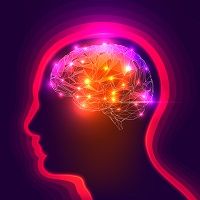Non-Invasive Diagnostics for Ischemic Stroke Found
Three biomarkers can be used as non-invasive diagnostic tools in cases of ischemic stroke, contributing important information, according to a recent study.

Three biomarkers can be used as non-invasive diagnostic tools in cases of ischemic stroke, contributing important information, according to a recent study. The study was published in The Journal of Neurology Research in December, 2015, and was conducted by Mostafa Saleh Melake of the Neurology Department at the Menoufiya School of Medicine in Egypt.
The researchers recruited 100 patients who were admitted to the Neurology Department at Menoufiya University within 24 hours of having an acute stroke. The participants were between the ages of 45 and 78 years old, and 51 of them were male. There were also “100 healthy controls matched with age and sex.”
Exclusion criteria included “intracerebral hemorrhage, subarachnoid hemorrhage and mass lesions on brain CT or MRI, transient ischemic attack (TIA) by retrograde diagnosis, more than 24 h since the stroke when they arrived at the emergency department, severe hepatic or renal impairment, on anticoagulant therapy, symptoms or signs of systemic inflammatory and infectious diseases, malignancy and evidence of venous thrombotic disease on admission.”
One of the first findings of this study was that, while there were “no significant differences between patients and controls regarding age and sex” there were significant differences when it came to “hypertension, diabetes mellitus, smoking, ischemic heart disease and atrial fibrillation,” as well as “all items of the lipid profile.”
Regarding the three biomarkers, the researchers found “that there was a highly significant difference between patients and the control group” for D-dimer, fibrinogen, and C-reactive protein (CRP). These findings were consistent with previous studies. Another finding of this study that confirmed previous work is that “D-dimer, fibrinogen and CRP had significant relation with poor outcome at 30 days.”
The researchers concluded that the findings of this study “may provide a rational basis by which to choose the optimal treatment and may help stratify patients in clinical trials of stroke treatment.”